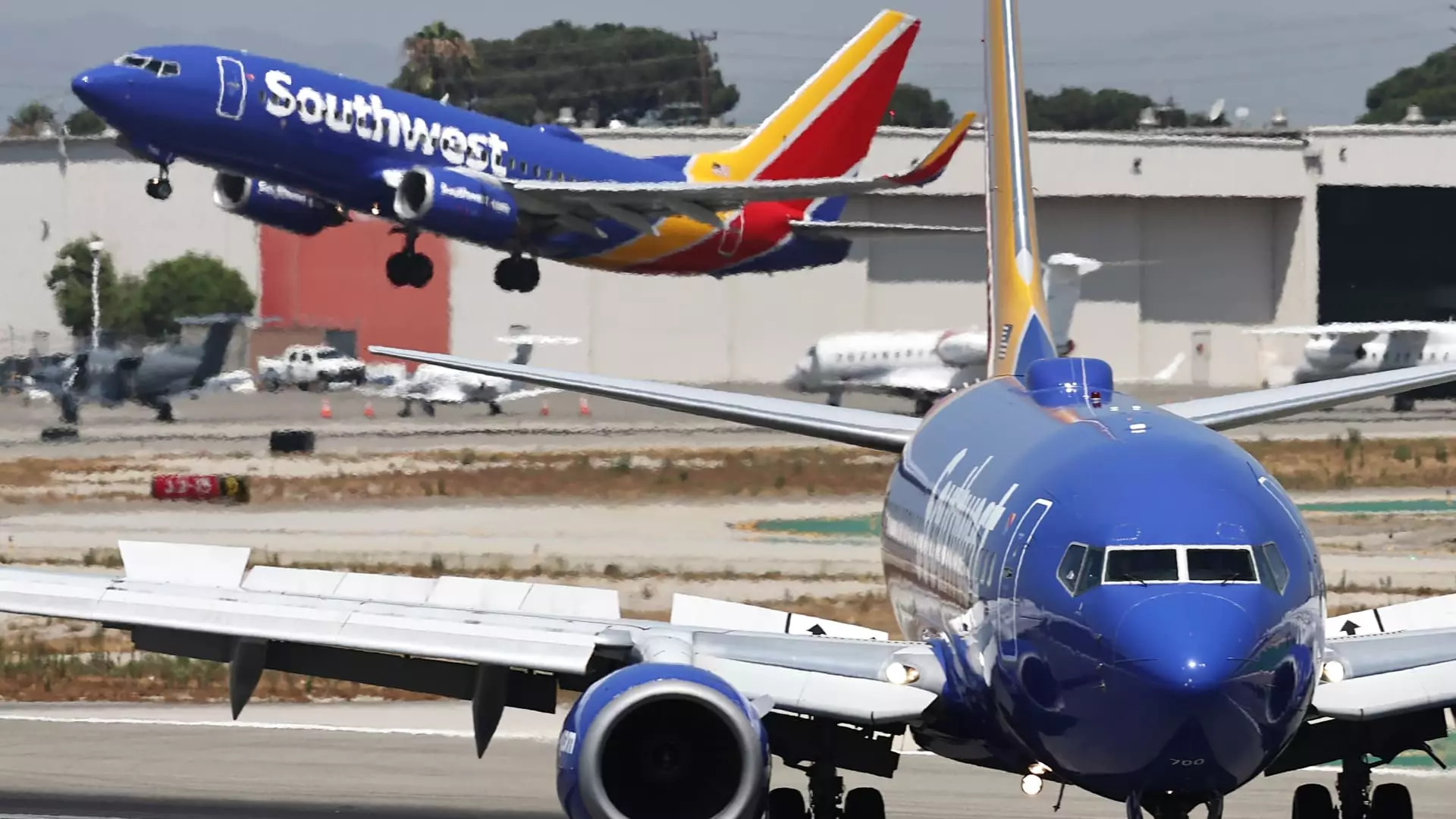Southwest Airlines has recently adjusted its revenue forecast for the third quarter, showcasing a notable turnaround amidst challenges. On Thursday, the airline announced an expected rise in unit revenue of up to 3% compared to the same period last year. This figure marks a shift from the previous outlook, which anticipated a decline of as much as 2%. This upward revision can be attributed partly to the rebooking of passengers impacted by the CrowdStrike outage in July, highlighting the airline’s ability to capitalize on emerging opportunities even in adverse situations.
Strategic Response to Activist Pressure
In a climate where corporate governance and responsiveness are under the scrutiny of activist investors, Southwest Airlines is making strategic maneuvers to counter challenges posed by Elliott Investment Management. The recent announcement of a $2.5 billion share buyback program reflects the airline’s commitment to returning value to shareholders while simultaneously addressing Elliott’s demands. The addition of Bob Fornaro to the board of directors further illustrates Southwest’s intention to bolster its leadership with experienced professionals who have a deep understanding of the aviation industry.
Bob Fornaro’s extensive background in the airline sector, particularly with his previous roles at Spirit and AirTran, signals a strategic shift toward integrating seasoned insights into the company’s operational framework. His deep-rooted connections with Southwest enhance the board’s capacity to foster innovation and adapt to the evolving landscape of air travel. This emphasis on leadership renewal is particularly timely as Southwestern’s executive team, including CEO Bob Jordan, faces increasing scrutiny from activists who are pressing for transformational change at the airline.
Key to the airline’s forward momentum is the recent overhaul of its longstanding business model—a move aimed at enhancing revenue streams without sacrificing customer satisfaction. One significant change includes introducing assigned seating and extra-legroom options, both tailored to tap into diverse consumer preferences. Interestingly, despite these changes, Southwest remains steadfast in its policy of allowing customers to check two bags for free, a strategy that has historically generated market share gains that outweigh potential revenue losses from baggage fees.
While Southwest exists within this realm of optimistic projections and strategic changes, it is also navigating operational challenges. Recent announcements about service cuts in Atlanta and potential job reductions for over 300 flight attendants and pilots indicate a cautious approach to cost management. These decisions reflect the delicate balance between maintaining operational efficiency and ensuring service quality. As the airline prepares for an investor day presentation, the overarching message will likely focus on demonstrating its resilience and ability to adapt in a fast-paced industry, ultimately aiming to bolster investor confidence in its long-term trajectory.
Southwest Airlines is embarking on a transformative journey, navigating financial reinvigoration while addressing shareholder demands amidst operational upheaval. The path ahead appears challenging but promising, as the airline seeks to redefine its market position and embrace innovative practices that resonate with travelers in an ever-changing aviation landscape.

Leave a Reply